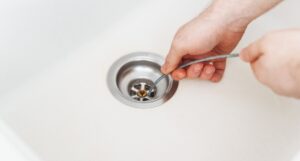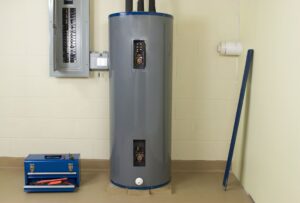Plumbing, often taken for granted in modern times, has a rich history that dates back to ancient civilizations. These early societies faced the same basic challenges we encounter today, like the need to fix a slow draining sink in Charleston.
However, their innovative solutions laid the groundwork for the advanced plumbing systems we rely on. This exploration into historical plumbing reveals not just how our ancestors managed drainage but also how these ancient techniques have influenced contemporary practices.
The Ingenious Plumbing of Ancient Civilizations
Ancient civilizations weren’t just about grand monuments and complex social structures; they were also pioneers in the field of plumbing. From the aqueducts of Rome to the baths of Mohenjo-Daro, each society had unique methods of managing water and waste.
The Indus Valley Civilization
The Indus Valley Civilization, dating back to around 3000 BCE, is one of the earliest examples of sophisticated urban planning. They had intricate systems of water supply and waste disposal, with homes connected to centralized drainage systems – a remarkable achievement for its time.
Roman Engineering Prowess
The Romans are often credited with revolutionizing plumbing. Their aqueducts, public baths, and sewer systems were engineering marvels that showcased not only their technical skills but also their understanding of public health and hygiene.
Techniques and Materials Used in Ancient Plumbing
The materials and techniques used in ancient plumbing were surprisingly advanced and varied from region to region, depending on available resources.
Clay Pipes and Cemented Conduits
In civilizations like the Greeks and Romans, clay pipes and cemented conduits were commonly used for water transport. The durability and effectiveness of these materials are evidenced by the remnants of these systems that still exist today.
Lead Pipes and Potential Hazards
The Romans also used lead pipes, which, while efficient, posed health risks – a fact not understood at the time. This highlights the evolution in understanding materials’ impact on health in plumbing history.
The Impact of Ancient Plumbing on Public Health
One cannot overlook the significant impact of these early plumbing systems on public health and urban development.
Preventing Disease and Promoting Hygiene
By managing waste and providing clean water, ancient plumbing systems played a crucial role in preventing diseases. Public baths and toilets were not just conveniences; they were crucial public health tools.
Influence on Urban Planning and Development
The sophistication of ancient plumbing systems directly influenced the growth and layout of cities. The ability to manage water and waste effectively allowed for denser populations and more organized urban centers.
Plumbing Innovations and Cultural Significance
Plumbing in ancient times was not just about functionality; it also held cultural and social significance.
The Roman Baths: Social and Cultural Hubs
Roman baths were more than just places of hygiene; they were social and cultural hubs. The intricate plumbing that supported these baths facilitated not only cleanliness but also social interaction and leisure.
Symbolism and Luxury in Plumbing
In some cultures, elaborate fountains and pools were symbols of wealth and power. The ability to manipulate water for aesthetic purposes was a sign of advanced technology and affluence.
Lessons from the Past: Modern Plumbing’s Debt to History
Modern plumbing owes much to these ancient innovations. Understanding the history of plumbing helps us appreciate the complex systems that we often take for granted, like when we seek to fix a slow draining sink in Charleston.
Continuity and Adaptation
Many principles and techniques from ancient plumbing are still in use, albeit adapted with modern materials and technology. The continuity of certain methods underscores the ingenuity of our ancestors.
Learning from Ancient Practices
Modern plumbing continues to learn from ancient practices, particularly in sustainability and efficient water management. As we face global water challenges, these historical lessons become increasingly relevant.
Conclusion
The journey from the drainage systems of ancient civilizations to today’s sophisticated plumbing is a testament to human ingenuity and adaptation.
As we marvel at these historical achievements, we also recognize the importance of maintaining and improving our current systems. If you’re dealing with a slow draining sink in Charleston or any other plumbing issue, remember that you’re part of a long history of human innovation in water management.
For expert plumbing services that combine the best of ancient wisdom and modern technology, turn to Rooter-Man SC. With over 15 years of experience and a commitment to quality and customer satisfaction, we are your go-to solution for all plumbing needs in Charleston and the Lowcountry.
Schedule your service and ensure your plumbing system is in top condition, continuing the legacy of those ancient plumbing pioneers.







